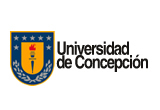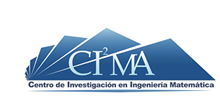News
This chance was posible thanks to a 2017 successful internship experience
Two former undergraduate thesis students from the Center for Research in Mathematical Engineering, CI²MA, from the Universidad de Concepción, were recently accepted in the PhD in Applied and Computational Mathematics program of Simon Fraiser University (Vancouver, Canada). They are Juan Manuel Cárdenas and Javier Almonacid, currently research assistant at CI²MA, who together with Sebastián Moraga, made a successful research stay in February and March last year, thanks to the efforts of the Center's director, Gabriel Gatica, with his peer in that North American institution, Nilima Nigam. Javier obtained his Mathematical Civil Engineer degree in August last year, after presenting his thesis named Numerical Analysis of a Mixed Finite Element Method for the Problem of Boussinesq with Variable Viscosity, co-directed by Gabriel Gatica and Ricardo Oyarzúa; whereas Juan Manuel presented a few weeks ago his thesis An HDG Method for a Problem of Linear Elasticity in Domains with Border Curve, developed under the guidance of Manuel Solano.
.JPG)
SFU provides some financial resources that students will use to cover their Doctorate program enrollments and other expenses such as student insurance. That is why both of them hope to also be awarded Becas Chile program funds, which, among other benefits, finances the air ticket once a year to visit the country of origin, in addition to the expenses related to the visa. Becas Chile does requires its beneficiaries to return to Chile and work here in terms of retribution. “That is not a problem for me. I hope I can learn a lot in Canada, then get here and be able to give back some of that”, Juan Manuel explains. “Doctorate program contents are very different from what we have been working on here. That was noticed in the internship that we did last year. However, they do fit very well to my interests that have to do with medical imaging that is something that is done there a lot, and is related to obtaining a better result of the medical examinations that are performed”, he explains.
In any case, Becas Chile considers a period of retribution delay if the beneficiary is selected for postdoctoral studies, which is precisely the intention of Javier and Juan Manuel. “We hope to keep our collaborations with researchers from CI²MA” says Javier and Juan Manuel adds that “if you intend to return, it is important to maintain these ties”.

